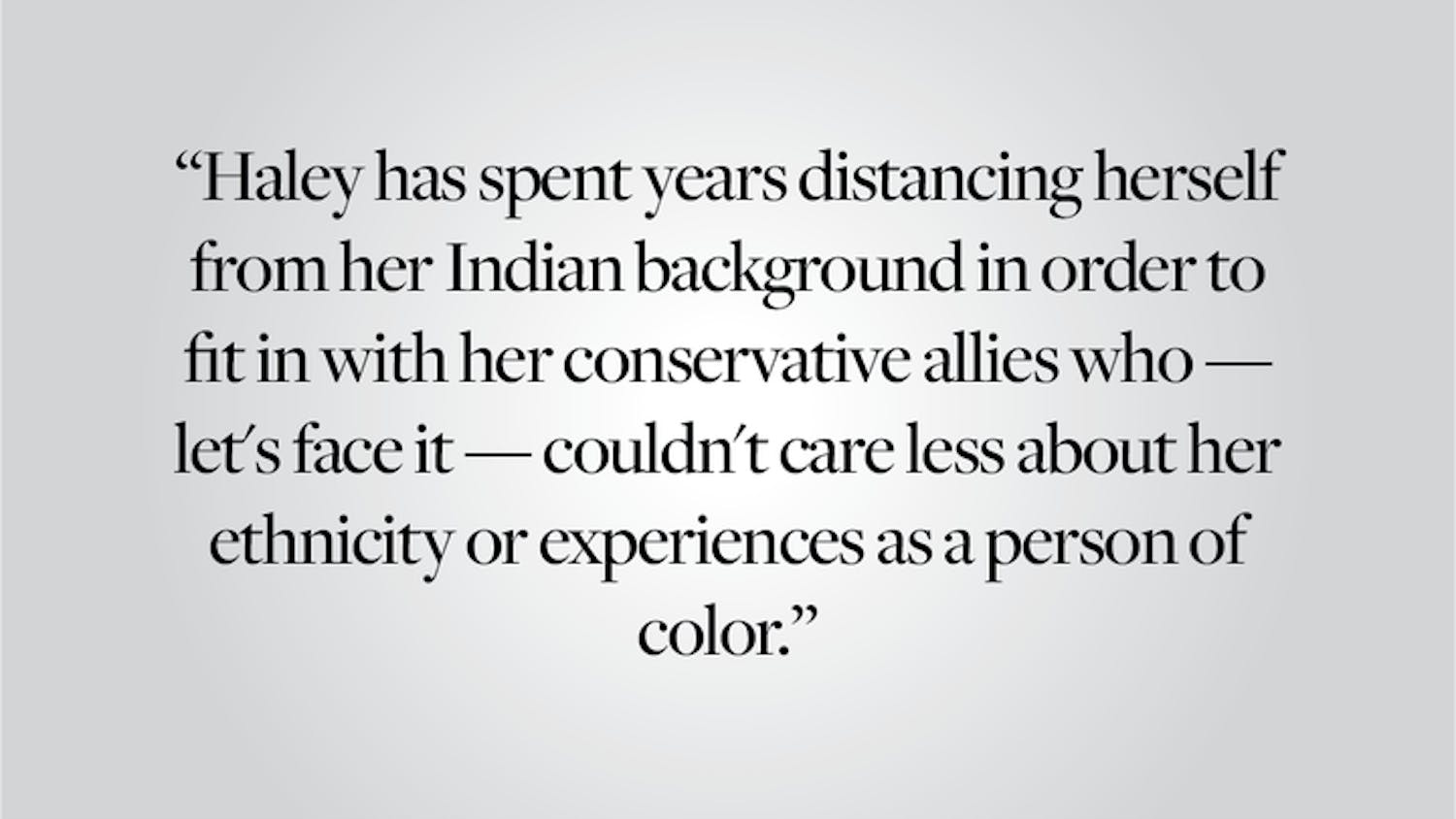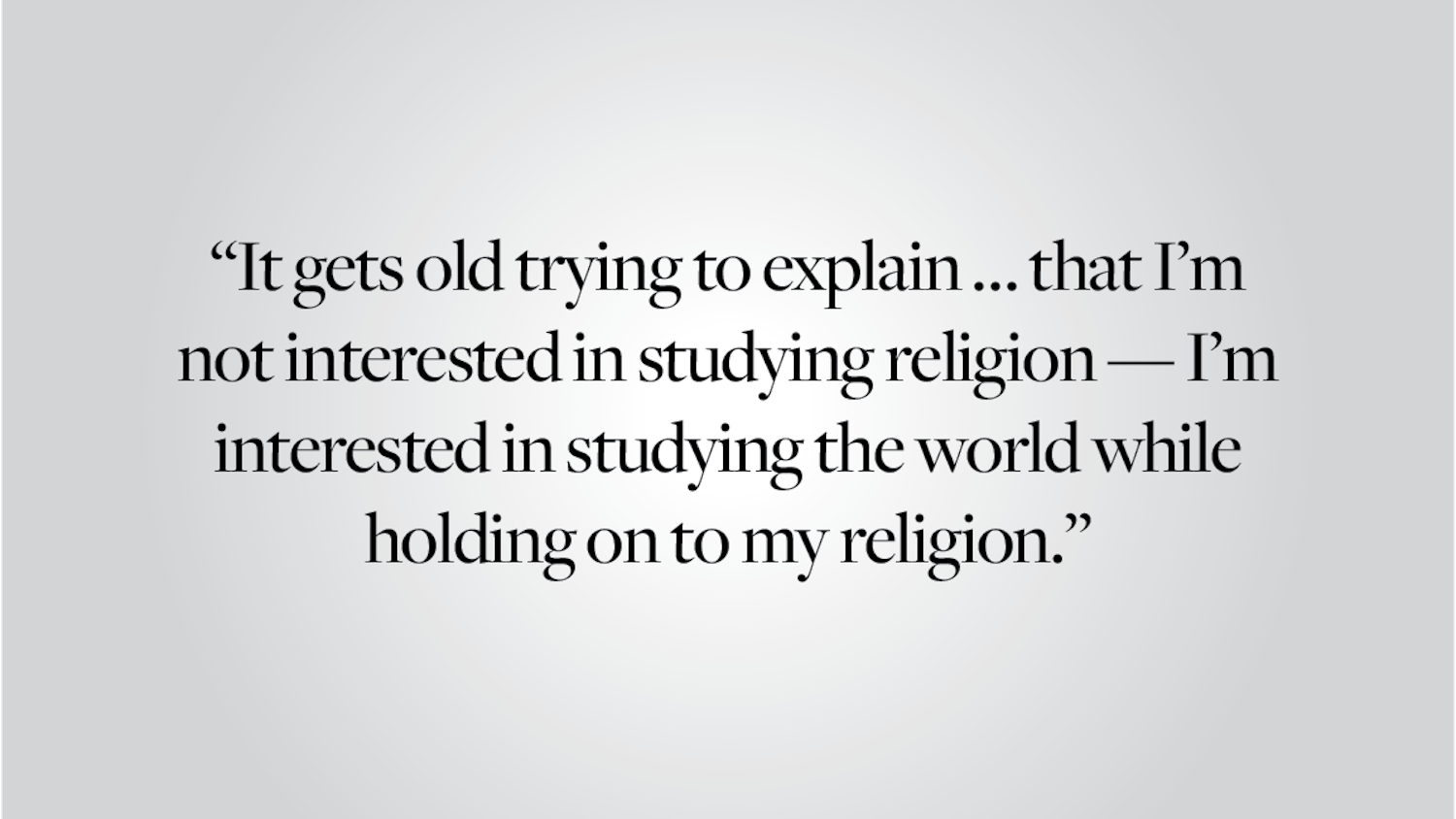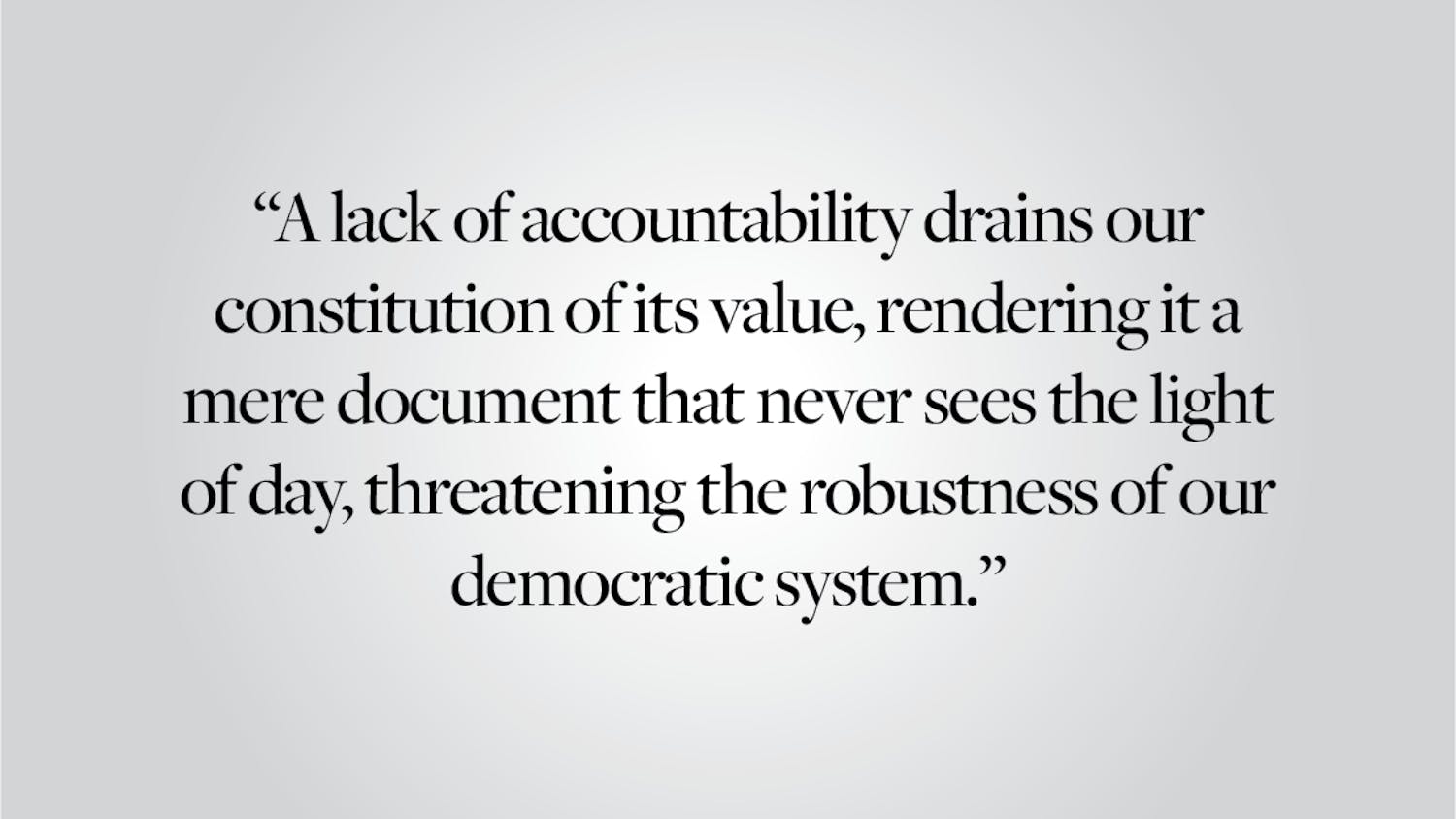Kyle Tildon ’19 titles his column “On the classroom.” Most readers will quickly see that the subtext is more like “Racism and sexism surface again at Brown.” This is a hot topic. It’s likely to draw your attention.
I haven’t seen the column so let me begin with an apology in case I guess wrong about its contents. That’s relevant because I am writing about respect. To “show respect” means approaching others as whole people with complicated backgrounds, affording them some degree of trust, putting their words and actions in the larger context of who they are, caring about their wellbeing. It’s at the heart of an inclusive community. Too often we treat others on the basis of simple categories, what anti-racist scholars refer to as binaries. Their reference is to binaries of racialization (“because you are black, that’s all I need to know about you”). It is a challenge to get beyond binary thinking, especially in today’s American society where people are so polarized and the media celebrates the most radical oppositions. I saw this before in the 1960s when I was a student. I remember when police were called pigs. I remember when many sociologists considered Daniel Patrick Moynihan racist because he wrote that black poverty would be hard to overcome if most black women were single mothers. People were routinely reduced to a single category, and the protest movements that I identified with were quite sure of being right.
With this background I would like to address some short messages.
To readers: Tildon writes about my class. If you want to have a basis for judgment, I suggest asking the students who are enrolled in it or reading the syllabus. Tildon also writes about Elijah Anderson and his writing in “Streetwise” and “The White Space.” (You can download the chapter, the essay and my syllabus.) Professor Anderson was born in the 1940s on a plantation. His family was part of the Great Migration, and his father became a factory worker while his mother did laundry. He is now a prominent black intellectual, professor of sociology and African-American studies at Yale University and one of the world’s leading urban ethnographers. In 2013 he received the Cox-Johnson-Frazier Award from the American Sociological Association. This is a very specific honor for work in the traditions of three African-American scholars. The award citation states that “few can boast of studying race in urban America as carefully, thoroughly and sensitively” or “of honoring the humanity or what DuBois called the ‘soul beauty’ of black Americans.” This is the person whose work Tildon has judged to be deficient.
Professor Anderson’s curriculum vitae doesn’t place him above critique. I stress to students that the class readings are chosen to identify questions and points of view about how to approach them and often do not give definitive answers. Professor Anderson’s latest book (similar to “The White Space”) describes the travails of operating in a white world but emphasizes the existence of settings that are safer, mixed spaces (what he calls the cosmopolitan canopy). In a book review, I said he had a too optimistic view of the cosmopolitan canopy. Later I realized I misunderstood his intent — he described the city not as it is, but as it could be. The safe space for civil interaction is an aspirational concept.
“Streetwise” presents a vivid ethnographic account of a poor, inner-city neighborhood. Our class discussion began with an overview presentation by a student. I posed this question to her: Does the chapter interpret the behavior of women in the neighborhood (many of them teen mothers) in terms of having the wrong values? She responded clearly, and I think correctly, that their values were very conventional (to have a loved husband and family) but that there were few pathways to achieving those goals. This is, in fact, the general approach taken by many urban sociologists — the “problems” of the inner city are not due to a failure of the norms and values of residents but rather to the constraints of a highly unequal society. If one reads the chapter thoughtfully, it emerges that Anderson interprets his observations in terms of structural racism. This is an explicitly anti-racist position.
When I invited Professor Anderson at the last minute to visit, he asked that I share “The White Space” and arrange to show a short video about his ethnographic fieldwork in “Streetwise." In class, he talked at length about how difficult it is for a black man to navigate in the white space, how he is expected to “do the dance,” how at any moment his apparent acceptance could be revoked. This is when he referred to how “you wear a tie, you clean your fingernails, put on deodorant.”
He talked at length about what it means to do ethnography. He stressed that everyone has a frame of reference. No matter how carefully a researcher analyzes his data, no matter how many years he stays in the field, he always has to be concerned about how his own frame of reference affects his interpretation. He also pointed out that when people from another frame of reference read his work they may use it as a way to reaffirm their own prejudices. He illustrated the nature of his fieldwork with the video to show how people interacted with him and what kinds of things they said. He took many questions from students. He didn’t flinch when Tildon told him the work is racist, and he engaged Tildon at length in a thoughtful back and forth.
I encourage you to read the material and watch the video. Let me know if you’d like to talk about it.
To Tildon: I am glad you felt enabled to express yourself in class. I regret that you feel I was dismissive of your thoughts. As you know, I encouraged class discussion of your initial comment that “Streetwise” is racist and sexist. The conversation continued after you left the classroom, and we went over the chapter in detail. I’m sorry you missed it. As you also know, I offered more encouragement for participation in an email to the class. I wrote, “A good thing happened in class today. A student felt able to express a strong challenge to the point of view of Eli Anderson in his chapter, and we had some thoughtful discussion of how Anderson and Sanchez-Jankowski interpret the culture and behaviors that they describe.” You should not feel that you are not being heard just because I don’t agree with you. We all listened.
You also know that I invited you to talk in person. You brought your faculty adviser with you, and we spent nearly an hour going over the issues. Again you were heard. Before that, I had already decided to devote the whole next class to this and to invite Professor Anderson in person. I rearranged the class schedule to address your issues. Is that less than the dynamic space that you wish for, where students shape the course?
You used the terms “racist” and “sexist” to refer to the possibility that Professor Anderson’s findings could be over-generalized and misapplied to diminish the people whose neighborhood he studied. You didn’t have to use these loaded words. The same ideas can be expressed without calling someone out as racist and sexist, and I think you showed bad judgment in using that language in your op-ed. It was bad judgment to tape record a person who was our guest in the classroom, to search out phrases or sentences from the recording and report them out of context to make him look foolish. You gave too much weight to your sense of having been offended and not enough to the damage and pain your published words could cause this man. You have written privately to assure me that you mean “no personal disrespect in the slightest.” This is not good enough, even if you are a serious, thoughtful, well-intentioned person. Your approach to these decisions is binary in the sense that I defined above. It does not show respect to Professor Anderson; it treats him as “other.”
To the editors: Your rush to publish Kyle’s column was poorly considered. I was shocked when you first wrote, mid-afternoon on Thursday, “offering an opportunity” to write a concurrent (not a responsive) column that had to be received by 10 p.m. the same day. I was then surprised when you took the position that the statements in Kyle’s column are true and verified facts, and that you have no responsibility for his interpretation of the facts. Incomplete facts are not facts. Quotes taken out of context are not facts, even if they are exactly right, word for word. And as journal editors you absolutely have to take responsibility for what columns you choose to publish. Not every person is given this same scarce space. My impression is that you decided to lead with the opinion page rather than to work on the news pages. Why make that choice?
You had to know that publishing a charge of racism and sexism against a prominent African American would be noticed and have consequences for his standing. How will Brown succeed in recruiting distinguished faculty members from underrepresented groups if we have the reputation of attacking them when some students don’t like what they write? You now have heard from two other faculty who have first-hand knowledge. One perceives that Professor Anderson’s presentation “provided a space for individuals in the room during that period for open engagement and discussion of the scholarship being presented. Individual students provided different perspectives that were responded to and thoughtfully considered and addressed by Professor Anderson.” Another, who has discussed the materials with Tildon at length, states he “did not agree with the assertion that either of them were being racist or sexist.” When you have information from multiple sources that a proposed op-ed is misleading or biased, you’re not doing your job if you simply publish it. If you believe that the complaints are worth looking into, then by all means look into them and do your own original reporting. I don’t seek to protect anyone from scrutiny. But by taking the easier path, you did not show respect to our guest.
To myself: John, you know that the University is not separate from society, and whatever currents are circulating outside are sometimes magnified inside the ivory tower. Yes, I understand the goal of a diverse and inclusive community in which each individual’s humanity and dignity are acknowledged and accorded the full respect of the entire University community. But don’t be surprised at how hard it is to make mutual respect the guiding norm for behavior.
John Logan, professor of sociology, can be reached at john_logan@brown.edu.
Please send responses to this opinion to letters@browndailyherald.com and other op-eds to opinions@browndailyherald.com.




